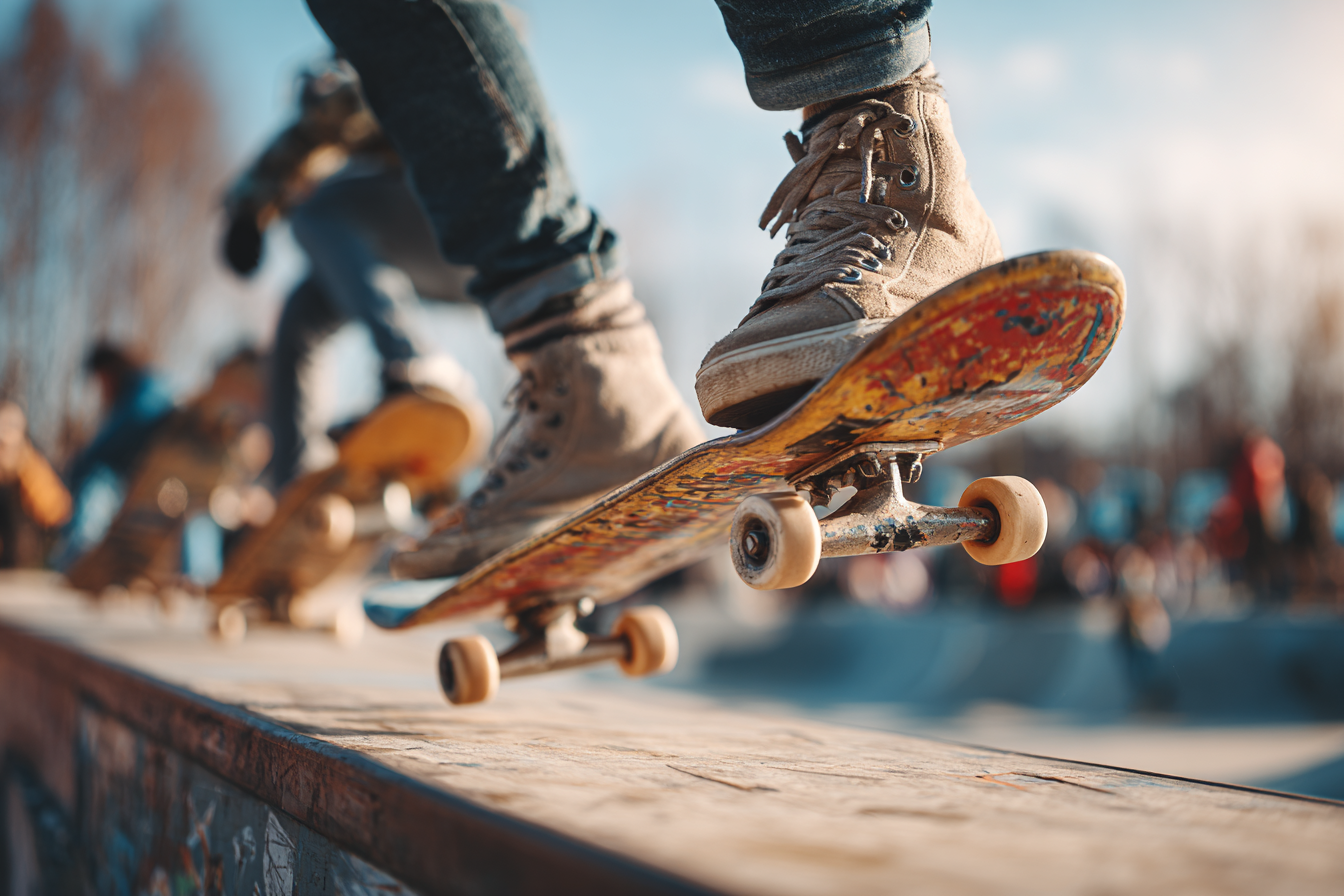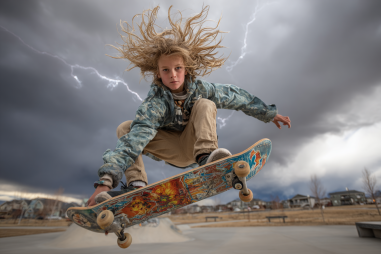Skateboarding is a vibrant and dynamic sport that has been growing in popularity worldwide. However, despite its widespread appeal, it remains surrounded by a variety of myths and misconceptions. These misunderstandings can create barriers for those curious about trying skateboarding and can paint a skewed picture of the community and culture around it. Let’s dive into some of the most common skateboarding myths and misconceptions and explore what the reality really is.
Why Skateboarding Myths Persist
Skateboarding has always been more than just a sport — it’s a lifestyle and an expression of creativity combined with physical skill. Because of its unique culture and history, certain myths tend to persist. Media portrayals, old stereotypes, and a lack of firsthand experience for many people contribute to misunderstandings. Additionally, skateboarding’s non-traditional nature — often performed in urban environments rather than formal athletic venues — has made it easy for misconceptions to take root. This is why debunking these myths is essential to foster a more inclusive and accurate understanding of skateboarding.
Myth 1: Skateboarding Is Only for Reckless Teens
One of the most common stereotypes is that skateboarding is exclusively a pastime for reckless teenagers. While it’s true that many young people are drawn to skating due to its adrenaline rush and challenge, skateboarding is by no means limited to this age group or personality type.
Skateboarding attracts people of all ages, backgrounds, and walks of life. Many adult enthusiasts are passionate about it, using it as a way to stay active, express themselves, and even build a sense of community. Professional skateboarding competitions have participants ranging from teenagers to seasoned athletes in their 30s and 40s. The idea that skateboarding is simply about risk-taking is outdated and overlooks the discipline and skill involved.
Myth 2: Skateboarding Is Inherently Dangerous
While skateboarding, like any physical activity, carries some risk, labeling it as inherently dangerous ignores the common safety practices and skill development that serious skaters embrace. Helmet usage, pads, and learning proper techniques are all standard parts of skateboarding culture for those who want to minimize injury.
Moreover, injury rates within skateboarding are often comparable to or lower than those of many other sports, including soccer or basketball. The controlled environment of skateparks and the gradual progression from beginner to advanced levels help participants develop the necessary skills safely. Promoting responsible skating is crucial in breaking this myth and encouraging newcomers to enjoy the activity without undue fear.
Myth 3: You Need Special Talent to Start Skateboarding
Many people shy away from skateboarding because they believe you need natural talent or specific athletic ability to get started. The truth is that like many sports, skateboarding is a skill-based activity that anyone can learn with practice, patience, and determination.
Most expert skateboarders started out as beginners, falling and failing many times before mastering their favorite tricks. Skateboarding is very much about persistence and learning from mistakes rather than innate talent. Beginners are encouraged to start with the basics — balancing, pushing, and simple turns — and gradually build their confidence and abilities at their own pace.
Myth 4: Skateboarding Is Not a Serious Sport
For a long time, skateboarding was viewed as more of a hobby or alternative lifestyle rather than a legitimate sport. However, this misconception has been challenged repeatedly by the dedicated athletes and competitions that have propelled skateboarding to the global stage.
Skateboarding made its Olympic debut in Tokyo 2020, cementing its status as a professional sport. The level of athleticism, training, and strategy involved is substantial. Skaters analyze courses, perfect their techniques, and maintain physical conditioning comparable to athletes in other professional sports. Skateboarding requires creativity, precision, strength, and endurance, making it every bit as serious and demanding as traditional sports.
Myth 5: All Skateboarders Are Rebels or Troublemakers
The image of skateboarders as rebels or troublemakers has been perpetuated in popular culture for decades, often linking skating with vandalism and rule-breaking. While skateboarding’s roots are embedded in counterculture and creative expression, painting all skateboarders with this broad brush is unfair and inaccurate.
The skateboarding community today is diverse and inclusive, with many skaters focused on positive community engagement, promoting respect for public spaces, and supporting each other. Many cities work with local skaters to create safe environments, like skateparks and community programs, helping to foster cooperation rather than conflict. Skateboarding, for most, is about fun, artistry, and personal growth — not rebellion.
How Myths Impact the Skateboarding Community
These myths and misconceptions can discourage potential skateboarders from giving it a try or cause existing skaters to feel misunderstood or marginalized. Negative stereotypes can also influence how public spaces are managed or how laws are enforced against skateboarders.
Dispelling myths opens the door to greater acceptance and support for skateboarding as a positive and enriching activity. It helps communities recognize skateboarding as a legitimate sport and encourages the development of better facilities and opportunities. For those passionate about skateboarding, clearing up misunderstandings creates a stronger, more cohesive community where people feel welcome and respected.
Seeing Skateboarding in a New Light
Skateboarding is an exciting, accessible, and inclusive sport that is for everyone — regardless of age, background, or skill level. By debunking the common myths surrounding skateboarding, we can appreciate the true spirit of the sport: creativity, perseverance, and camaraderie. So if you’ve ever been curious about skating, there’s no better time than now to pick up a board, give it a try, and join a community that celebrates individuality and passion.







